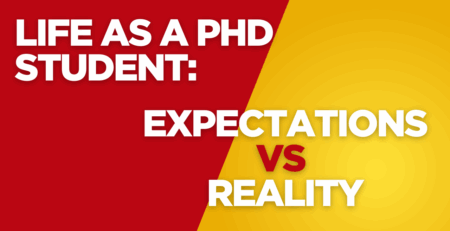23Jun

Embarking on your PhD journey is a significant academic milestone. At the core of this journey lies a crucial decision: selecting the right PhD Base Paper in 2025. Your PhD Base Paper in 2025 acts as the cornerstone for your research proposal, literature review, methodology framework, and the eventual thesis. With the increasing volume of publications and the evolving research landscape, choosing the ideal paper can be both overwhelming and confusing. In this detailed guide, we’ll explore how to select the right PhD base paper, what factors to consider, where to search, and common mistakes to avoid — ensuring your research starts with a solid academic foundation.

A PhD base paper is a scholarly research article that closely aligns with your intended research area and serves as the primary reference or inspiration for your PhD work. This paper often:
A well-chosen base paper helps streamline your proposal writing and research design. It allows you to justify the relevance of your study, build on existing literature, and avoid redundant work.
The right base paper can:
On the flip side, choosing a weak or outdated paper can mislead your research, causing unnecessary revisions and delays.
Before looking for a base paper, be clear about:
For instance, if you are in Computer Science and interested in “AI-based healthcare diagnostics,” narrow it down further: deep learning for cancer detection, AI for medical imaging, etc.
Use updated and reputed digital libraries like:
In 2025, AI-powered academic databases like Semantic Scholar or Connected Papers also help visualize paper relationships and discover trending research topics.
Use advanced search filters:
Tip: Focus on papers from the last 3–5 years, especially for fast-evolving fields like Artificial Intelligence, Bioinformatics, and IoT.
Once you shortlist a few papers, assess them using the following criteria:
Relevance
Recency
Research Gap
Citations and Impact
Methodology
Before finalizing your base paper, go through review articles and systematic literature reviews. These papers:
This step gives you a 360-degree view of your domain and strengthens your base paper selection.
Once you have 2–3 potential base papers:
A good base paper should be implementable. Check:
This is especially important in applied research areas like Engineering, Data Science, or Biomedical studies.
Choosing an Outdated Paper
Stay away from papers older than 7–10 years unless it’s a foundational theory.
Relying on Just One Source
Cross-reference your chosen paper with other sources to verify its credibility and relevance.
Ignoring the Journal’s Quality
Avoid papers published in predatory journals. Always check whether it’s indexed in Scopus, SCI, or UGC CARE.
Blindly Copying a Topic
Don’t just replicate the base paper. Always add novelty — propose improvements, address a limitation, or explore a new angle.
In 2025, several AI-driven and smart tools can simplify the base paper selection process:
Use these tools to compare papers, organize references, and build your literature framework more efficiently.
Does it align with your research interests?
Is it recent and published in a reputed journal?
Can you find research gaps or improvement areas in it?
Is the methodology feasible for your setup?
Has it been cited or recognized in the field?
Can you extend or modify it for novelty?
If you can confidently tick off these boxes, you’re ready to proceed.
Selecting the right PhD Base Paper in 2025 is the first critical decision you’ll make on your research journey. With the right approach, tools, and guidance, you can choose a PhD Base Paper in 2025 that not only inspires your work but also strengthens your academic contribution.
Kenfra Research understands the challenges faced by PhD scholars and offers tailored solutions to support your academic goals. From topic selection to advanced plagiarism checking.
Need help selecting your PhD base paper?
Contact Kenfra today for personalized PhD guidance.

Research papers are the backbone of academic progress, showcasing your hard work and contributing to the body of knowledge... read more

Facing rejection for your research topic is a common experience for many PhD scholars and postgraduate students. Whether you selected... read more
LNMU could refer to Lalit Narayan Mithila University, a well-known university in India. In legal contexts, the term "HC" typically... read more

Embarking on a PhD journey is a major milestone. Many students enter doctoral programs filled with dreams of intellectual... read more
IntroductionThe JEE Main 2024 city intimation slip out, aspirants are gearing up for the exam. One crucial aspect of preparation... read more

If you're launching a website, one of the most crucial decisions you'll make is choosing the right web hosting. Web... read more
Engg colleges expect campus placements to take off in Jan The anticipation of a surge in campus placements by engineering colleges... read more
WhatsApp us
Comments (3)
I too found it hard and tough really it was like mind curving and curving.Later on while doing PhD /research I see the toughness and it describes about the real webs and writes likes using digital and terms.🙏
Hi!
Thank you so much for your kind words 😊
Feel free to explore more — and if you have any questions or topics you’d like us to cover, just let us know.
Comments are closed.